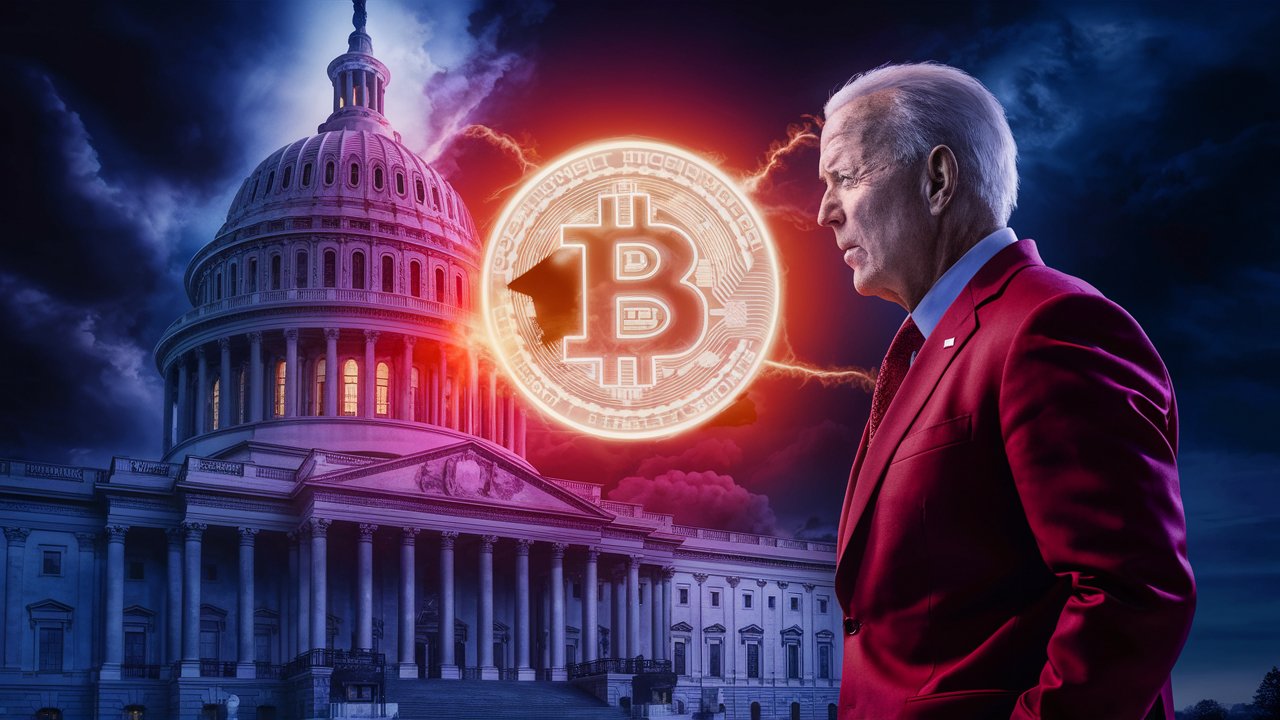
On Thursday, May 16, the United States Senate joined the House of Representatives in seeking to repeal the controversial Securities and Exchange Commission (SEC) crypto policy, Staff Accounting Bulletin No. 121. U.S. President Joe Biden has vowed to veto the resolution. This rule affects institutions that do business with cryptocurrency companies.
On May 16, the senators passed H.J.Res 109, which, by 60 to 38 votes, nullified the SEC’s staff Accounting Bulletin. Many lawmakers and industry leaders have criticized the rule. The commission rule requires banks to keep clients’ digital assets on their balance sheets, with capital maintained against them.
Most Republicans voted in favor of the resolution, and a dozen Democrats easily passed it because of the majority votes. Nevertheless, the resolution didn’t garner enough votes to ensure it was veto-proof. Chuck Schumer (D-N.Y), the Senate Majority leader, supported the party leader in opposing the SEC’s crypto effort. Other leaders joined them in the Democratic Party.
Motivations behind the resolution
“The tally, a stunning 60 ‘years’ in the Senate vote, sends a strong signal that both houses of Congress, across the political divide, clearly disapprove of this rule,” Said the crypto group Blockchain Association.
On May 8, President Joe Biden said he intended to veto the bill to “protect investors in crypto-asset markets and to safeguard the broader financial system.” This was before the resolution passed the U.S. House of Representatives. If the President vetoes it, the legislation will return to Congress, requiring a two-thirds majority vote to pass again.
Senator Cynthia Lummis (R-Wyo.), who pushed for the resolutions in the Senate, described the bulletin as “a disaster” that did not protect consumers.
“This is a win for financial innovation and a clear rebuke of the way the Biden administration and Chair Gary Gensler have treated crypto assets and marks the first time both chambers of Congress have passed standalone crypto legislation,” said the Senator.
An SEC spokesperson said in a statement after the veto that,
“SAB 121 is non-binding staff guidance that, if followed, enhances important disclosure to investors in firms that safeguard crypto assets for others,” “Time and again, we have seen crypto firms fail and watched as their customers lied up at the bankruptcy court in hopes of getting what they thought was legally theirs.”
Lawmakers verdicts
Lawmakers in the House and Senate pursued SAB 121 under the Congressional Review Act, which gives Congress the power to overturn federal rules. Approximately 21 Democrats in the House joined many Republican efforts, defying the White House’s warnings.
Rep. Kyle Food (R-Neb.) described the vote as “landmark results.”
“It is clear there is overwhelming opposition to SAB, and I urge President Joe Biden to reconsider his previous statement of intent to veto the resolution. The President should sign my resolution to ensure the SEC reverses course and sets America on a path to growing our digital financial future,” he said.
They sought to kill the policy with the Congressional Review Act. As the law dictates, a successful reversal would stop the SEC from pursuing similar policies. The White House statement indicated this could unduly restrict the SEC’s ability. It would limit its power to implement necessary guardrails. Additionally, it would affect its capability to address future issues concerning crypto-assets and financial stability.
Rep. Wiley Nickel (D-N.C.) noted that the House “Never should’ve had to resort to” the Congressional Review Act and urged the Secretary to withdraw the bulletin before it is presented to the President.
“Today’s Senate vote to repeal SAB 121 sends a clear bipartisan message: Congress will not stand idly by as Gary Gensler and the SEC deliberately sidestep the stay=utory rulemaking process and overstep their regulatory authority,” he said.
The joint resolution could be a new phase for a different crypto bill, the Financial Innovation and Technology for the 21st Century Act. Regarding digital assets regulation, the legislation clearly outlines the roles of the SEC and Commodity Futures Trading Commission.
Also read: Chinese Authorities Take Down Illegal $2 Billion Crypto Operation
Discover more from The African Crypto
Subscribe to get the latest posts sent to your email.








